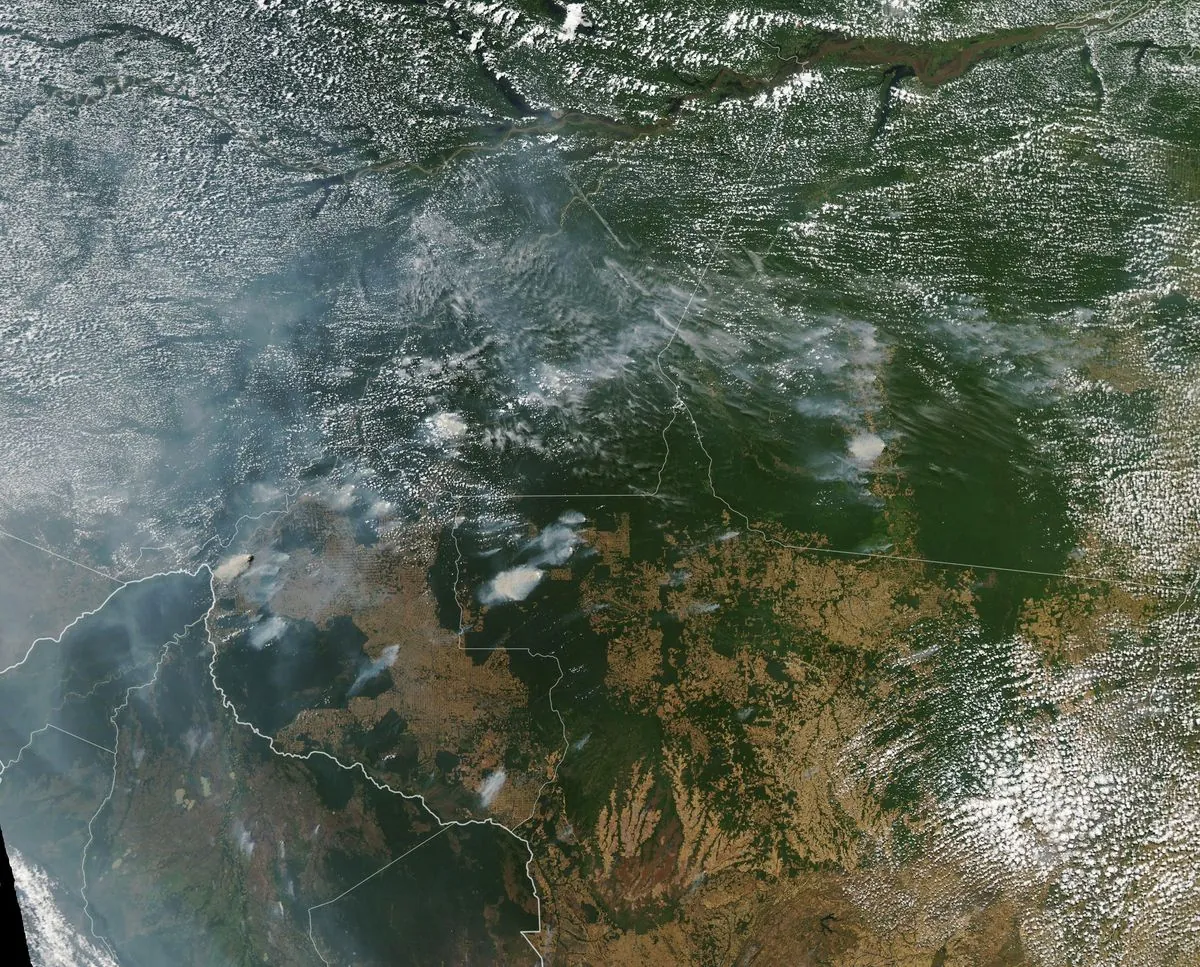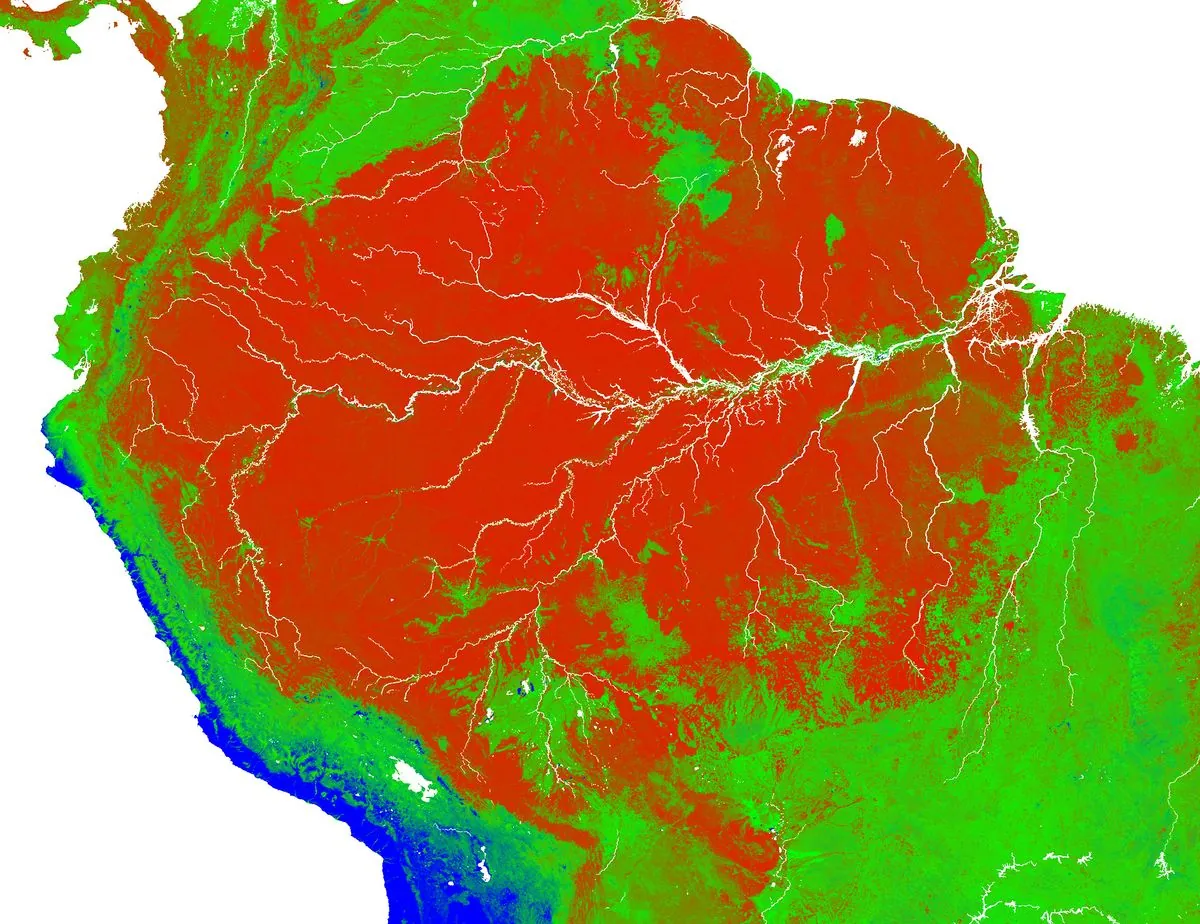Amazon Fires Surge to 14-Year High Amid Climate Crisis
Amazon rainforest fires in August 2023 reached the highest level since 2010, driven by El Niño and climate change. Experts warn of the impact on biodiversity and global climate patterns.

The Amazon rainforest, often referred to as the "Lungs of the Earth," is facing an unprecedented crisis. In August 2023, fire hotspots in the region surged to 38,266, marking the highest level since 2010. This alarming increase, more than double the previous year's count, has raised serious concerns among environmentalists and scientists.
The surge in fires is attributed to a combination of factors, including a record drought exacerbated by El Niño and climate change. These conditions have left the rainforest, which covers approximately 5.5 million square kilometers, particularly vulnerable. The Amazon, home to about 10% of the world's known biodiversity, plays a crucial role in global climate regulation, absorbing about 2 billion tons of CO2 annually.
Helga Correa, a conservation specialist at WWF-Brasil, provided insight into the situation. She noted that the areas with concentrated smoke in August coincided with the "Arch of Deforestation," encompassing parts of Rondonia, Amazonas, and Para states. This pattern suggests that human activities, alongside climate change and El Niño, are central to the increase in fires.

The impact of these fires extends far beyond the immediate region. The Amazon influences rainfall patterns as far away as the United States and is home to over 30 million people, including more than 400 indigenous tribes. With about 17% of the rainforest lost in the last 50 years, the current situation poses a significant threat to both biodiversity and human communities.
Deforestation has played a significant role in the current crisis. Often, fires are deliberately set to clear land for cattle ranching, a practice that has increased by 29% since 2015. This human-driven change, combined with warmer air and drier vegetation, has created conditions where fires can spread more rapidly and burn more intensely.
The long-term implications of these fires are profound. The Amazon, which has existed for at least 55 million years, contains over 40,000 plant species and about 2.5 million insect species. It also holds 1/5 of the world's freshwater. The loss of this ecosystem could have catastrophic consequences for global climate patterns and biodiversity.
As the world grapples with the climate crisis, the situation in the Amazon serves as a stark reminder of the interconnectedness of global ecosystems. The preservation of this vital rainforest is not just a regional concern but a global imperative, crucial for maintaining the delicate balance of our planet's climate and biodiversity.


































